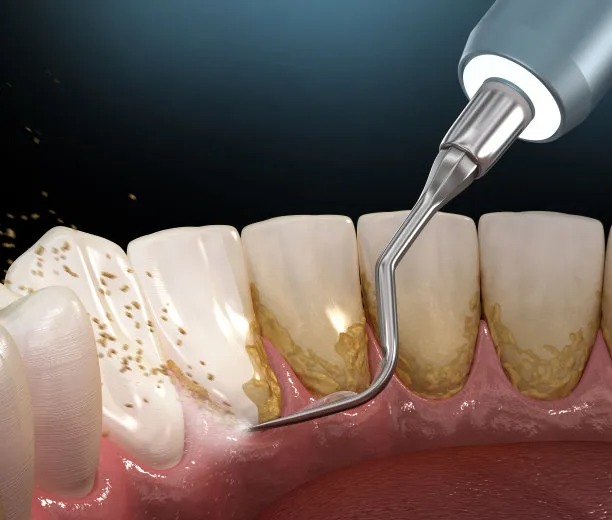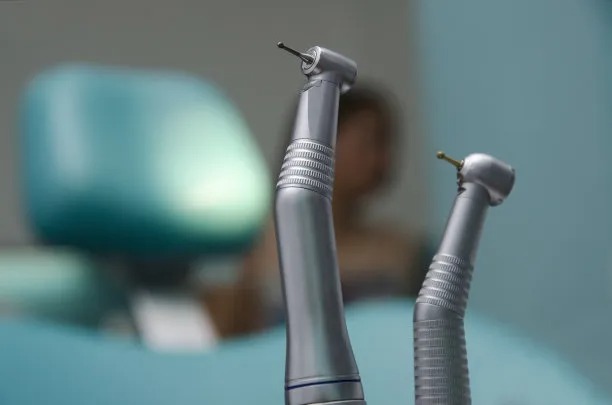Summary: Extracting a tooth can be a necessary step for maintaining essential oral health and overall wellbeing. This article explores the importance of tooth extraction by discussing its role in preventing further dental issues, alleviating pain, facilitating orthodontic treatment, and ensuring optimal oral hygiene. Each segment highlights how timely and appropriate tooth extraction can lead to better health outcomes, improve quality of life, and provide a foundation for future dental treatments. Understanding these aspects can empower individuals to make informed decisions regarding their dental care.
1. Preventing Further Dental Issues

One of the primary reasons for tooth extraction is to prevent the development of more severe dental problems. When a tooth becomes infected or has significant decay, it can lead to complications such as abscesses or the spread of infection to adjacent teeth. Removing the problematic tooth is often the best intervention to stop the progression of these issues.
Moreover, a severely damaged tooth can also create alignment problems with neighboring teeth. When a tooth is lost or needs to be extracted, it creates gaps that may cause teeth to shift. By addressing the problem early through extraction, individuals can maintain their oral structure and prevent the need for more extensive treatments down the line.
Ultimately, prevention is key in dental health. By extracting a tooth that is posing a risk, individuals can save themselves from more painful conditions, lengthy treatments, and increased expenses in the future.
2. Alleviating Pain and Discomfort
Tooth pain can be debilitating and affect daily life significantly. Teeth that are damaged, infected, or impacted can cause ongoing discomfort that interferes with eating, speaking, and general living. Extracting a tooth that is the source of such pain offers immediate relief and can dramatically improve one鈥檚 quality of life.
In many cases, individuals may try to cope with tooth pain through medications, thinking that it may subside. However, if the underlying issue persists, it can lead to chronic pain and further complications. Extraction provides a definitive solution to eliminate the source of discomfort, leading to a more peaceful and pain-free life.
Furthermore, alleviating pain from a problematic tooth can also help in reducing the anxiety that often accompanies dental issues. Removing the root cause of discomfort can help individuals regain confidence in their dental health, reducing the fear associated with dental visits.
3. Facilitating Orthodontic Treatment
For those undergoing orthodontic treatment, tooth extraction may be necessary to create sufficient space for proper alignment. When overcrowding occurs, orthodontists often recommend the removal of certain teeth to ensure that the remaining teeth can be correctly positioned for a healthy bite.
By extracting teeth to facilitate orthodontic procedures, patients can achieve their desired outcomes faster and more effectively. This makes extraction an essential component of orthodontic treatment plans, emphasizing that it plays a vital role in achieving optimal dental alignment and function.
Moreover, maintaining proper alignment not only enhances aesthetics but also improves oral health. Misaligned teeth can lead to issues such as uneven wear, jaw pain, and difficulty in maintaining oral hygiene. Thus, timely tooth extraction directly supports overall dental wellness during orthodontic work.
4. Ensuring Optimal Oral Hygiene
Maintaining good oral hygiene is essential for preventing dental diseases. Some teeth, especially those that are severely decayed or in difficult positions, can be challenging to clean properly. Such teeth can trap food particles, leading to plaque buildup and gum disease, which could compromise overall oral health.
Extracting teeth that are not restorable can therefore facilitate better oral hygiene. With fewer teeth, individuals may find it easier to maintain their dental health by effectively cleaning their remaining teeth. This proactive approach can lead to improved health outcomes and reduce the likelihood of future dental problems.
In addition, a clean mouth translates to fewer visits to the dentist for treatments related to preventable issues. This not only saves time and money but also contributes to long-term wellbeing鈥攂oth physically and mentally鈥攂y removing the stress associated with ongoing dental treatments for preventable conditions.
Summary:
In conclusion, extracting a tooth may seem daunting, but understanding its importance can alleviate many concerns. Preventing further issues, alleviating pain, facilitating orthodontic treatment, and ensuring optimal hygiene highlight the necessity of timely dental intervention. Taking proactive steps in dental care can lead to lasting health benefits, allowing individuals to enjoy improved quality of life.
This article is compiled by Vickong Dental and the content is for reference only.
Vickong Dental
Vickong Dental is a large medical group established in Hong Kong in 2008 by professors from well-known medical universities in Guangdong and Hong Kong, as well as medical doctors from key national '985' universities (including Master's supervisors and senior professors). The chain of branches brings together expert dentists with PhDs and Master's degrees from Hong Kong and Mainland China, committed to providing high-quality dental treatment.
"Vickong Dental Practices the University Motto of 'Healing and Serving Society,' with a Stable Operation for Sixteen Years. It Has Been honored with Hong Kong Enterprise Leaders's Choice,' and is a Global Trusted Implant Center for the Nobel Implant System. Recommended by Hong Kong Metro Broadcast and Guangdong Television, it Serves Customers from Over Thirty Countries and Regions, Gaining the Trust and Favor of Citizens from the Guangdong-Hong Kong-Macau Greater Bay Area and Surrounding Cities.

Thousands of customers' unanimous praise
The most recognized and highly recommended dental service by customers in the Guangdong-Hong Kong-Macau Greater Bay Area
We Ensure You Receive Detailed Care and Attention Here
Hong Kong standards, Shenzhen prices, Your Trusted English-speaking dentists

Vickong Dental Medical-Grade Instrument Disinfection Process
Vickong Dental Medical-Grade Instrument Disinfection Process

Vickong Dental Chain: A Warm and Comfortable Environment for Treatment






Appointment Hours

Q&A
Why choose Vickong Dental?
Vickong Dental practices the university motto 「Medicine to Benefit Society」, with each branch bringing together highly qualified dentists with doctoral and master’s degrees from Hong Kong and the Mainland, and has maintained seventeen years of steady operation。Recipient of 「2024 Hong Kong Enterprise Leaders Brand」, 「2025 Hong Kong Enterprise Leaders Brand」, a Nobel Biocare Global Trusted Implant Center, and a brand recommended by Metro Radio Hong Kong and Guangdong TV。
To date, we have served customers from more than thirty countries and regions,earning exceptionally high word-of-mouth recognition and trusted recommendations from residents across the Guangdong-Hong Kong-Macao Greater Bay Area and surrounding cities
We have eight major branches in Zhuhai、Shenzhen,and a consultation and service assurance center in Hong Kong,so you can book a free consultation at any time for any questions,which is very reassuring.
If I do not accept the quotation after the CT scan, will I be charged??
No! As long as the actual treatment has not started, you will not be charged any fees.
Will there be any additional charges during the treatment process?
No, there won’t be any additional charges. Before treatment begins, we will clearly explain the treatment plan and its corresponding fees. Only after the patient agrees and signs the consent form will we proceed with the dental service.
Can I pay in Hong Kong dollars?
Yes. Vickong Dental accepts payment in Hong Kong dollars. The amount will be converted based on the exchange rate of the day, and the applicable rate will be clearly communicated to you in advance.
Can I reschedule my appointment at any time?
Yes. Please contact us via **WeChat** or **WhatsApp** as early as possible, providing your original appointment time and details, along with your preferred new date and time slot for rescheduling.













